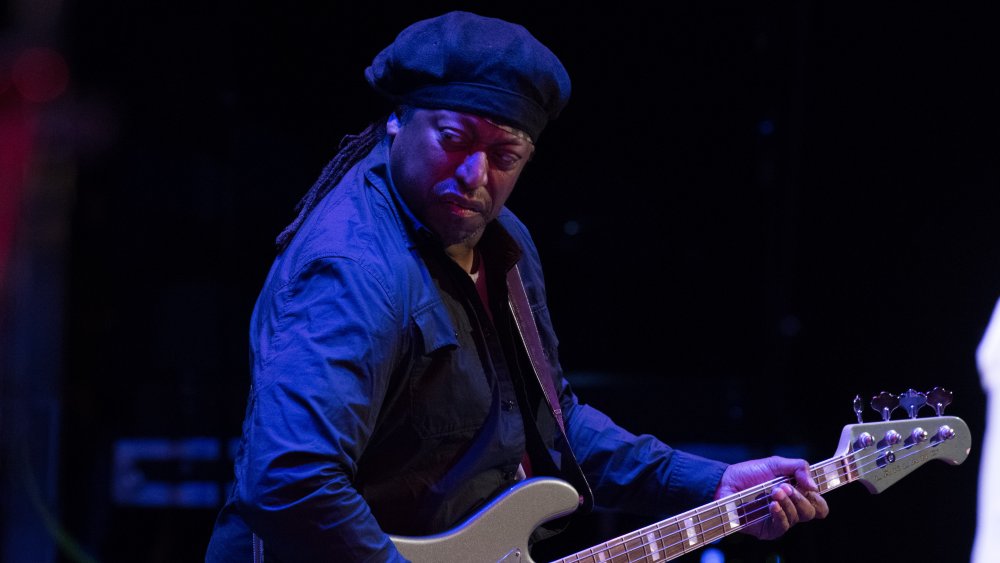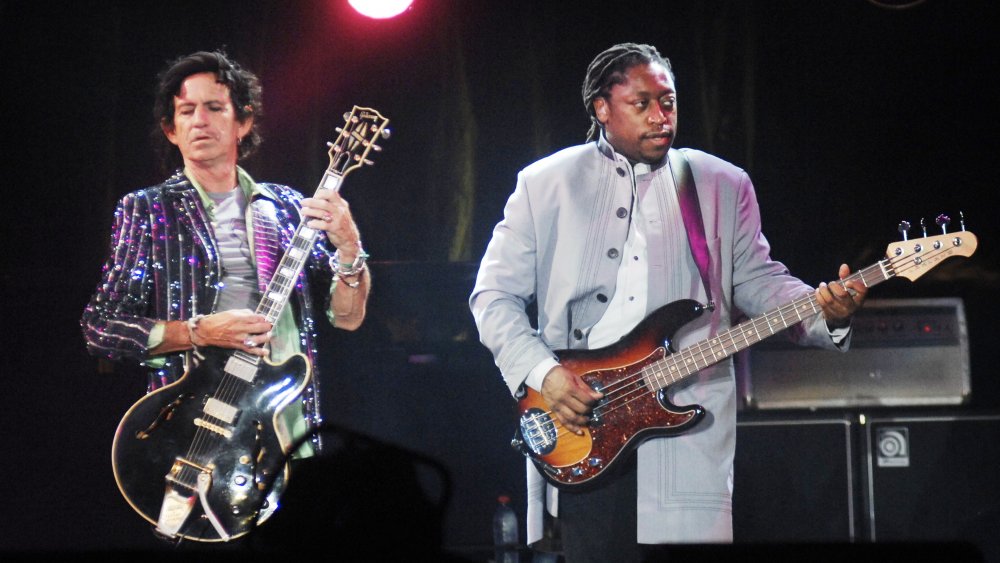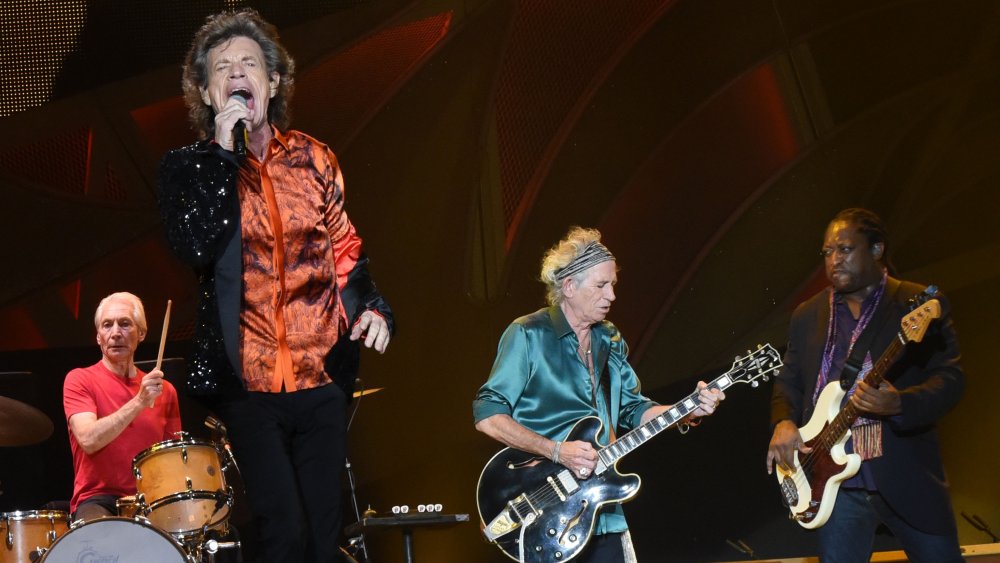Darryl Jones Was The Rolling Stones' Forgotten Bassist. Here's What We Know About Him
In 2016, the BBC asked Darryl Jones whether he'd like to be a full member of The Rolling Stones. A fair enough question considering by this point he had worked with them for over twenty years, appearing as the bassist for every album The Rolling Stones released and every tour they played since 1993.
"Obviously," Darryl Jones admitted after a moment's thought, "that would be a really wonderful thing for a person like me. I have been a sideman [for The Rolling Stones and other acts] for more than 30 years now. I think most musicians, somewhere deep down inside, even if they are sidemen, or if they are hired players, there is a desire to be in a band. And I would not be being completely honest if I said that it would not be wonderful, it would not be amazing, to be considered and, you know, jump into this organisation as a full member."
The Rolling Stones have always been a brand which dictates those they consider members and those they consider associated musicians. Their keyboardist, Chuck Leavell, began working with The Rolling Stones in 1982, leading to a relationship that reads on his official website like a resume for an official member, but not. Similarly, Ian Stewart, their first keyboardist and co-founder, stayed after being dismissed by their manager Andrew Loog Oldham because he didn't fit the band's brand, serving as their keyboardist and roadie. Like them, Darryl Jones deserves to be known in his own right.
Some love for the bassist
According to the biography given on his official website, Darryl Jones first learned to play bass when his father was teaching him how to play the xylophone and drums. He saw his south Chicago neighbor, an Angus Thomas, play the bass in the school talent show and promptly began studying with him. Over the years, he developed a mastery of the instrument and a solid reputation within the Chicago music scene.
His breakout gig occurred in 1985, when he joined Sting — that Sting — in his first solo band. This opened the opportunity for him to work with B.B. King, Ziggy Marley, and Eric Clapton as well as tour with Madonna. Then in 1993, Bill Wyman, The Rolling Stone's bassist, quit, saying in an interview on British television "When I joined this band, we thought we would last two or three years with a bit of luck and come out with a few shillings in our pockets. Now, here I am 30 years later, and I haven't done any of the other important things in life."
Hearing this, Darryl Jones left messages with Mick Jagger's management expressing interest and flew out to Ireland to audition. Jones would later recall how he learned he would be playing with the band "[Keith Richards said], 'Charlie asked me if we were going to play with you? We've auditioned all those guys, chose you to play on the record — I don't think we're now gonna go choose someone else.'"
Like a Rolling Stone
Their first rehearsal together reveals a lot about the working relationship between Darryl Jones and the band that was only a year younger than himself — he was born in 1961 and The Rolling Stones first started playing in 1962.
In a 2020 interview with Guitar World, Darryl Jones explained that he was still trying to figure out the music The Rolling Stones had been working on before Wyman left and he joined. In his telling of the story, Jones walked up to Keith Richards and asked "'Hey man, did you play bass on this song?'"
"'Yeah'" Richards said.
"'So what's the bassline?'"
"'I don't know, man. You're the bass player, you tell me what the bassline is!'"
Summing up their relationship then, Jones noted that "they're pretty cool about letting me do what I want. I still want to play the essence of the song."
Outside of playing with The Rolling Stones, Darryl Jones has also been working on a documentary project called Darryl Jones: Like A Rolling Stone, by Eric Hamburg and Rick English, which set out to document the life of a side musician, specifically Darryl Jones. The other members of The Rolling Stones were interviewed for it, saying all the laudatory things they would say for an exceptional bass player. While the film has yet to be released, you can see the clip of The Stones talking about Darryl Jones on the BBC.


